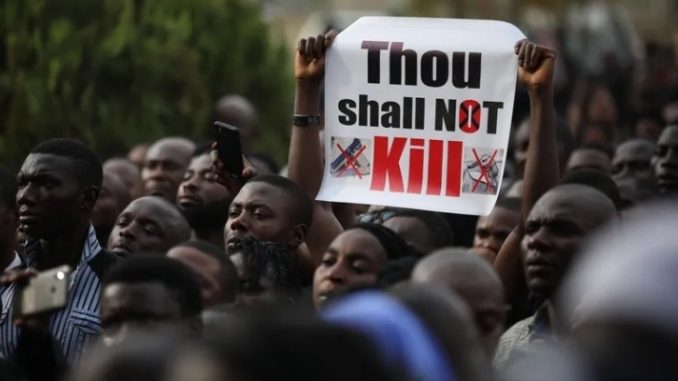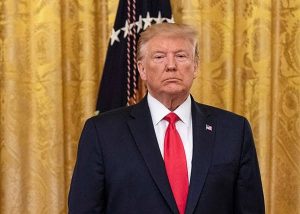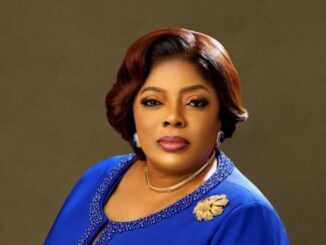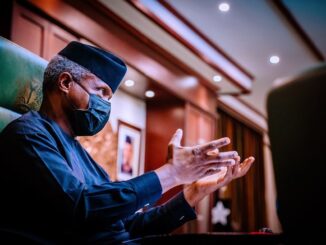

By Gideon Maxwell
October 31, 2025
United States President Donald Trump has ignited a fresh diplomatic storm with his declaration that Christians in Nigeria are facing what he described as an “existential threat,” calling for decisive U.S. action to address what he termed a “mass slaughter” of believers in Africa’s most populous nation.
In a post on Truth Social on Friday, Trump announced that Nigeria would be redesignated as a “Country of Particular Concern” (CPC) under the International Religious Freedom Act, a classification that opens the door for U.S. sanctions in cases of “systematic, ongoing, and egregious” religious‐freedom violations.
“Christianity is facing an existential threat in Nigeria. Thousands of Christians are being killed. Radical Islamists are responsible for this mass slaughter,” Trump wrote.
“I am hereby making Nigeria a ‘COUNTRY OF PARTICULAR CONCERN.’”
He added: “The United States cannot stand by while such atrocities are happening in Nigeria … We stand ready, willing, and able to save our Great Christian population around the World!”
A familiar crisis with global reverberations
Nigeria, home to more than 220 million people, has long grappled with violent conflicts ranging from Islamist insurgency in the northeast to communal clashes in the Middle Belt.
ALSO READ: Human rights advocates sound alarm on ‘Christian genocide’ unfolding in Africa
Thousands have been killed in repeated attacks on Christian communities, with churches burned and villages razed in states such as Plateau, Benue and Kaduna.
Christian groups, including the Christian Association of Nigeria (CAN), have repeatedly alleged that government inaction has emboldened attackers, describing the killings as a “coordinated attempt to wipe out Christianity” in parts of the country.
However, analysts warn the crisis, while deeply tragic, extends beyond religion. According to independent reports, much of the violence stems from land disputes, ethnic tension, climate-driven migration and weak governance, factors that blur the lines between religious and socio-economic conflict.
A report by Deutsche Welle earlier this year cautioned against oversimplifying the pattern of attacks as “genocide,” noting that both Christian and Muslim communities have suffered heavily.
Diplomatic shockwaves
Trump’s announcement places Nigeria under renewed global scrutiny, with the potential for U.S. sanctions or suspension of certain non-humanitarian aid.
The U.S. State Department is expected to report to Congress on the matter in due course.
For Abuja, the designation carries significant diplomatic risk.
Officials at Nigeria’s Ministry of Foreign Affairs and the Information Minister have expressed concern that the “genocide” narrative could damage Nigeria’s reputation, strain bilateral relations and deter investors already wary of the country’s security challenges.
Presidential aides described Trump’s remarks as “politically motivated,” insisting that the Nigerian government protects citizens of all faiths.
“There is no state-sponsored persecution of Christians in Nigeria. Our security forces are confronting terrorists and criminals, not targeting any religion,” one senior official told the press.
Religious and political reactions
Christian leaders have welcomed Trump’s declaration as overdue recognition of their suffering. CAN President Archbishop Daniel Okoh said it was “a relief that the world is finally paying attention,” urging the Nigerian government to take “genuine and decisive steps” to end the killings.
Muslim groups, however, have warned against what they see as the politicisation of religion, arguing that thousands of Muslims have also been victims of violence in the country’s troubled regions.
The Supreme Council for Islamic Affairs said the U.S. should “avoid inflaming sectarian narratives that complicate Nigeria’s delicate peace.”
Political observers believe Trump’s stance could influence U.S.,Africa relations more broadly, signalling a return to value-based diplomacy centred on religious freedom and human rights.
The broader implications
The CPC designation grants Washington broad authority to impose sanctions, restrict security cooperation or suspend development programmes unless corrective action is taken. Analysts say this could alter Nigeria’s access to U.S. defence partnerships and investment incentives.
Yet for many Nigerians, the announcement also offers a glimmer of hope — an opportunity to push their government toward stronger accountability and protection for vulnerable communities.
Security experts note that while international pressure may drive reform, it also risks hardening internal divisions if Nigeria perceives the move as external interference.
“The U.S. framing of this as a religious war simplifies a very complex security puzzle,” said Abuja-based analyst Dr Nura Ahmed.
“Yes, Christians are dying, but so are Muslims. Poverty, politics, and weak governance are the real enablers.”
What lies ahead
In the coming weeks, all eyes will be on how Nigeria responds, whether through intensified security operations, inter-faith dialogues or a strategic diplomatic campaign to challenge the “genocide” label.
For the United States, Trump’s declaration underscores a renewed commitment to religious-freedom advocacy while testing Washington’s ability to balance moral leadership with pragmatic diplomacy in Africa.
For Nigeria, it is a sobering moment, a reminder that its internal crises are no longer purely domestic matters but global concerns capable of reshaping its standing on the world stage.




